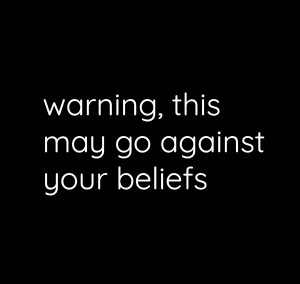What are the consequences of Social Media (self) censorship?

When we want to know something we go online. All the answers are just waiting for us to discover them.
Or not!
What we see online is a reflection of ourselves and the people we surround ourselves with, also known as the filter bubble. We all know that google searches are personalized to give us what we usually seek out and the same goes for social media. Feed algorithms make sure we get more of what we have previously engaged with and therefore are most likely to engage with in the future.
Debates on social media drive social change
Last weekend I had a discussion with a Danish social media influencer. He said that graphic and brutal images of war (in this case bombed Palestinian children) shouldn’t be shared on Facebook. That Facebook should be a safe place for all, including children. I have to say that I respectfully disagree.
Debates on social media drives social change and regulate cultural behavior by telling us what’s going on in the world and what should matter to us. We can only have an opinion about the things we are knowledgeable about. And today, whether we like it or not, social media is increasingly becoming one of our largest sources for knowledge and thereby also have an enormous influence on the framing of our political and social opinions.
Do social media influencers hold social responsibility?A recent study done by Facebook shows that we engage in a more positive way when we’re exposed to happy and humorous posts than with depressing ones. Most of us simply don’t like being confronted with the wrongdoing in the world when we browse our social media feed. Social media companies know it and so do social media influencers – which is part of the reason why they make sure not to give it to us. But is that the right thing to do? Yes, images of war and starving children make us feel bad and can potentially be bad for business or social media influencers that want to drive good feelings. But what are the consequences of not sharing the (sometimes brutal) reality of the world? And where do we draw the line as to what is acceptable to share online?
In my opinion, as a social media influencer you also become partially responsible for the knowledge and thought process of your followers by voicing your opinion about certain matters. Of course I’m well aware that as an employee you always reflect the image of your workplace and that you have to take company values into account when voicing your personal opinion.
With that said I think it is extremely important that social media reflects reality. We might not like to look at the harsh realities of others and we might not want to voice our own troubles, but that doesn’t give us the right to take away other people’s rights to voice theirs. It might be their only option.
After all what value would the internet hold without the right to freedom of speech?
Do you agree?
Storytelling on social media has increasingly become more visual and thereby harder for us to practice our right to ignore. But does the rise of visual storytelling mean that we shouldn’t be allowed to post certain images? That social media should be restricted to less graphic content? Should violent or uncomfortable videos and images be banned on social media for the sake of our own well-being?
What do you think? Should social media be a happy and safe place for all or should social media reflect reality no matter who might get hurt by it? Where do we draw the line and should it be drawn at all?
I agree that some images can have a negative effect on children. But I sincerely think that censored social media will have a negative effect on our world. And I believe we are already seeing the effect of positively biased social media, like our friends that are sharing their happy moments but in reality are miserable and can’t talk with anybody about it, because that would hurt the way they are framing their own story.
Maybe we simply need better sorting options (a truly personalized feed) or better child security in our smartphones and tablets?
I really feel strongly about this question. It is a debate we are going to have to take at some point, and in the light of the recent discussion on Net Neutrality it might as well be now.